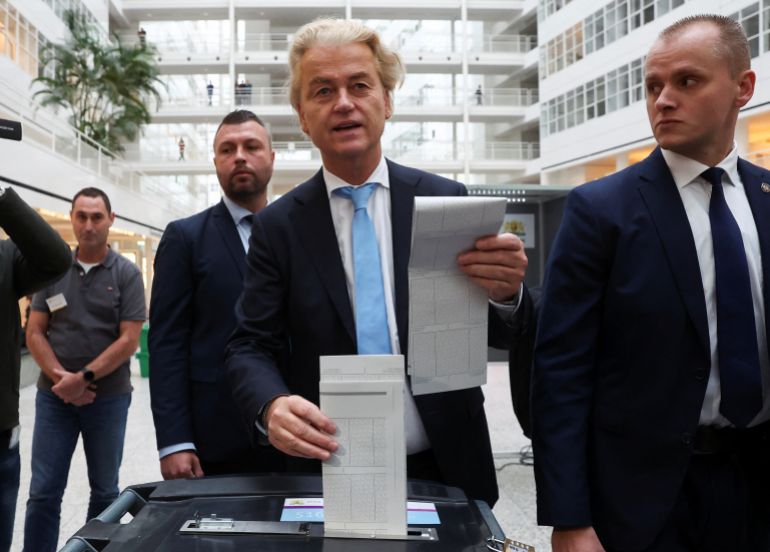On Thursday 23rd November, the Netherlands woke up to far-right populist candidate, Geert Wilders and his PVV party taking what many have called a shock victory. Beating all predictions, Wilders’ Freedom Party (PVV) has won 37 out of 150 seats after the Dutch went to the ballot box on Wednesday.
Running on a campaign focused on immigration, the cost-of-living crisis and housing shortages, Geert Wilders has previously been branded an islamophobe due to his comments about Muslims and the Qur’an. Yet, his campaign chimed with Dutch voters, as his party came in well ahead of the 25 seats for a joint Labour/Green ticket and 24 for the conservative People’s Party for Freedom and Democracy (VVD) – the party of the outgoing Prime Minister Mark Rutte.

However, there is a long way to go before the Netherlands will know who their Prime Minister will be. Geert Wilders and his party need 76 seats to secure an outright majority. Coalition talks have begun but most experts believe it could take months before a decision is made.
Wilders’ campaign also called for a referendum on the Netherlands leaving the European Union, an “asylum stop” and “no Islamic schools, Qurans and mosques.” Despite Mr Wilder’s hopes for a “Nexit” aka Dutch Brexit, there is arguably little interest from the Dutch public and will be unlikely to get agreement from coalition partners to sign up for a referendum. Yet, this victory is still a concern for Europhiles, as the Netherlands is one of the founding members of what became the European Union.
Nationalist and far-right leaders around Europe praised his achievement. In France, Marine Le Pen, leader of the right-wing party Front National, and member of the same European Parliament political group congratulated Wilders’ win via a tweet. Wilders is set to become the longest-serving lawmaker in the Dutch parliament later this year, as he has been a member of the House of Representatives since 1998.
However, there’s no certainty that Geert Wilders will take the top job. The upcoming months of coalition talks present an opportunity for several political parties. Yet, with this political lurch to the right, more eyes will be watching the Dutch political climate going forward.


